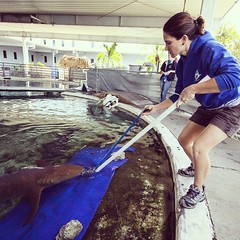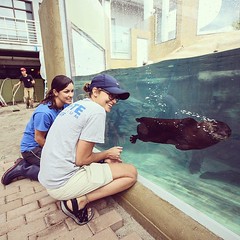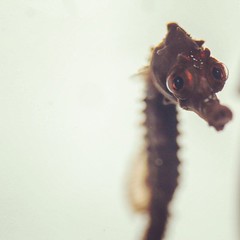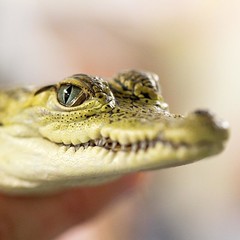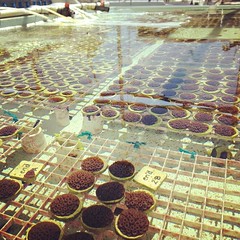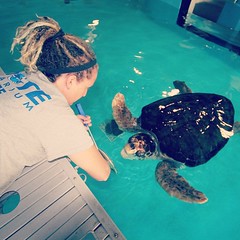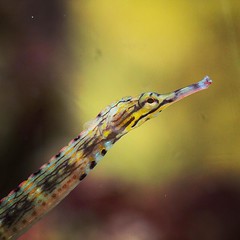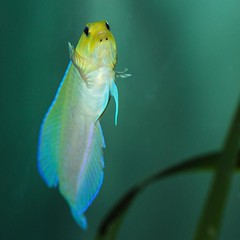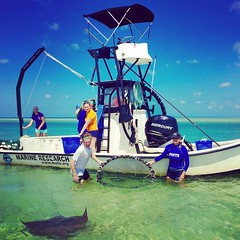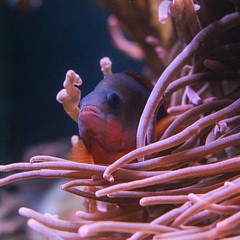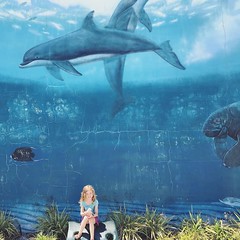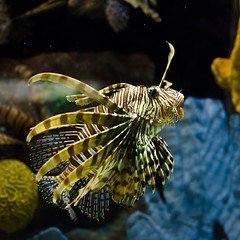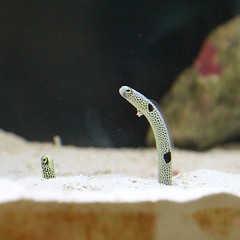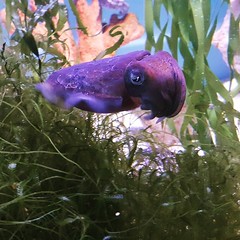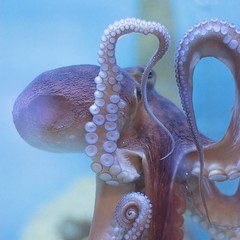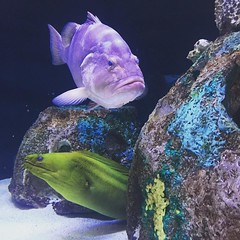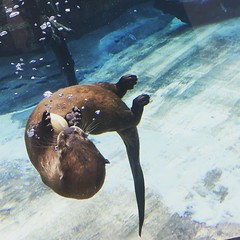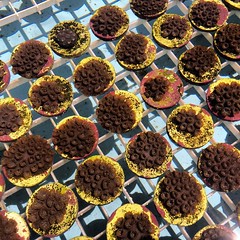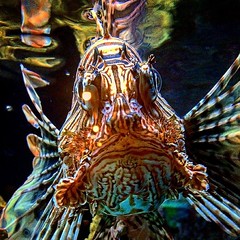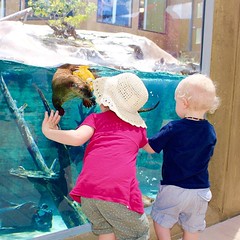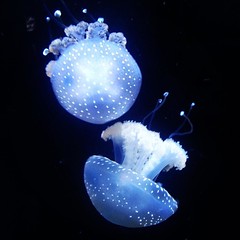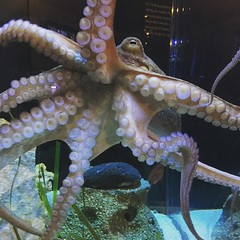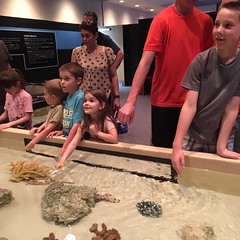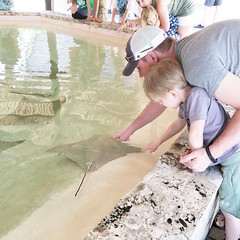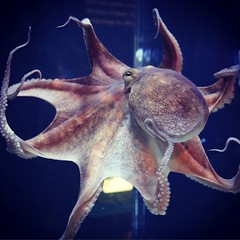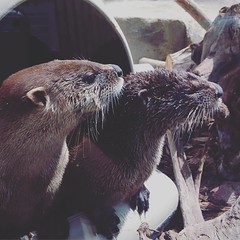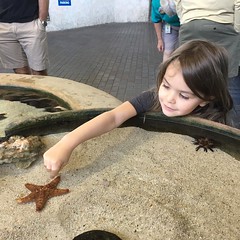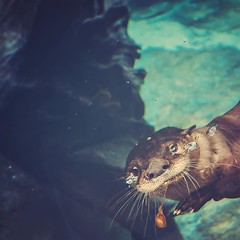1600 Ken Thompson Parkway
Sarasota, FL 34236
Ph: (941) 388-4441
Hours: 10AM - 5PM
A 501(c)3 nonprofit organization.
Panama City Turtles
(Turtles L-P and "Floatie", ST0101-ST0106)
| Age Class | Juvenile |
| Gender | Unknown |
| Date Stranded | January 2, 2001 |
| Location of Stranding | Panama City, FL |
| Date of Arrival | January 6, 2001 |
| Number of Days of Care | Up to 329 days |
Final Disposition
All 6 were released, the last on 30 November 2001
1/7 These turtles were part of a mass stranding of about 350 turtles in the Florida Panhandle, five of which were transferred to STRH from Gulf World in Panama City. The turtles were all cold-stunned due to the cold weather. All five have been started on antibiotics (enrofloxacin) as all seem to have pneumonia. 1/8 Blood tests today revealed elevated white counts and CK and LDH levels. Turtle L seems to have systemic problems in addition to the pneumonia. All turtles ate squid eagerly when it was offered to them. 1/10 All turtles except Turtle M continue to eat very well. We have changed antibiotics (amikacin and piperacillin) on Turtle M due to a rising white count. Turtle L has been put on additional medication for intestinal problems and a fungal infection of its shell. 1/11 Three more turtles were taken off enrofloxacin and started on piperacillin due to rising white counts. 1/12 One additional turtle, a Kemp's ridley arrived today, requiring treatment for pneumonia. All turtles except Turtle M are improving. 1/15 Turtle Q, the new arrival, is not eating well, but its white count is coming down in response to antibiotics. All other white counts are coming down as well. 1/18 Very little change on any of the six turtles, except that Turtle M has finally begun to eat some squash. 1/20 Turtle M has finally gotten an appetite and is eating squid and squash and shrimp very well. 1/25 All turtles are eating VERY well, gaining weight, and white counts are dropping quickly. Outlook is good. 1/27 Turtle Q (known as Floatie) is no longer floating, but its white count is going up. We have changed antibiotics (ceftazidime) and did a lung wash for bacterial culture. Others are doing well. 1/31 White counts on all of these turtles are normal or approaching normal. We should be able to take most of them off antibiotics within the next week. 2/5 All six of these turtles are doing very well. All white counts are normal. Three have been taken off antibiotics and the remaining three will probably be taken off by the end of the week. 2/9 Five of the six (all except the loggerhead Turtle L) are off all medications and may be ready for release in another 7-10 days. 2/15 Five of the turtles have been approved for release next week. 2/21 The five turtles have been tagged and moved to Clearwater Marine Aquarium where they will be held until released after 3/1. 2/26 Turtle L seems to be improving (white count is normal). 3/4 Turtle L continues to improve except that his appetite is off a little, possibly due to weather. 3/12 Turtle L's appetite is much better, but it still has chronic diarrhea. Otherwise, doing very well. 3/13 The five turtles were released today into the Gulf of Mexico. 3/21 Turtle L continues doing well. 4/5 New antibiotics seem to have reduced the diarrhea. Still doing well otherwise. 4/19 White count went back up so we have changed antibiotics again. Still eating very well. 5/1 White count is back down and doing well. 5/15 White count has gone back up. More diagnostics are going to be necessary to determine the cause. 5/23 White count is down and turtle seems to be responding to doxycycline. This turtle spends most of its time floating on the surface, but is capable of diving for food. 5/31 White count is normal and turtle is diving more. 6/20 Turtle has been placed in a large tank with another turtle that is diving and both turtles are being fed on the bottom. We expect this to modify his floating behavior. 7/11 Turtle is diving better but it still elects to float rather than rest on the bottom. Blood values continue to be normal without any medication. 9/11 Turtle is still not staying on the bottom, but is doing well otherwise. 11/2 Medically, this turtle is ready for release, but we are attempting some behavior modification to get the turtle to feed and rest on the bottom so that it can survive once released back into the wild. 11/19 This turtle is now sleeping on the bottom of the tank and catches live crabs to eat. If he continues, he is cleared for release as early as next week. 11/30 Turtle L was finally released today in Gullivan Bay off Marco Island, Florida. See photos below.
Lessons: Special care must be taken with turtles that were hand-reared as hatchlings to correct behavioral difficulties that develop during hand-rearing.
Turtle L (ST0101) on arrival (Loggerhead) |
Turtle M (ST0102) on arrival (Green) |
Turtle N (ST0103) on arrival (Green) |
Turtle O (ST0104) on arrival (Green) |
Turtle P (ST0105) on arrival (Green) |
Turtle Q (ST0106) on arrival (Kemp's) |
 Preparing to release Turtle L |
 Turtle L is "gone with a splash" |
@motemarinelab #motemarinelab
Mote Aquarium is likely to be busy this week, with many timed-ticket entry slots selling out. Please purchase your tickets in advance to guarantee entry.
Mote Aquarium is open seven days a week at our normal hours, 9:30 a.m.–5 p.m. We hope to SEA you soon!
